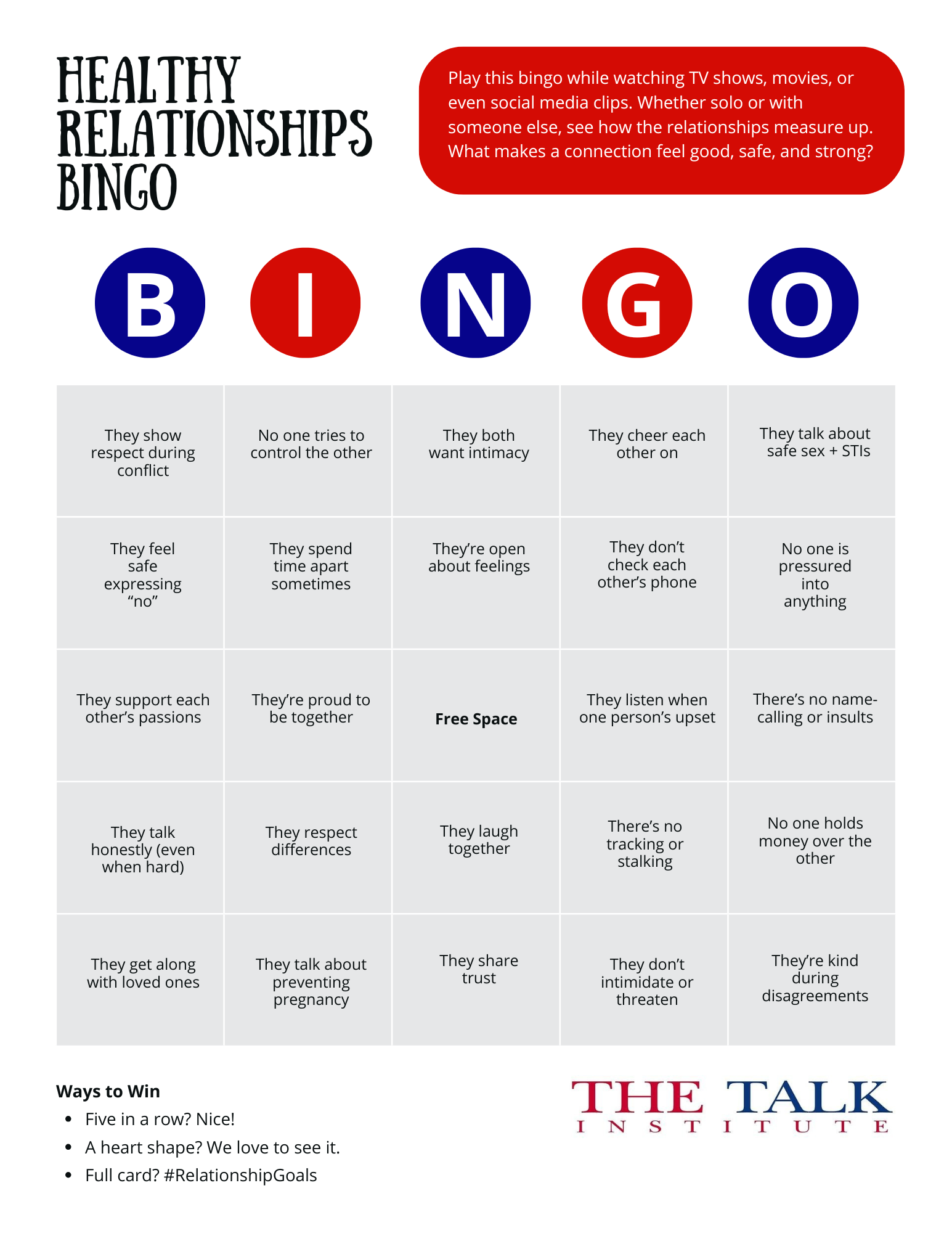The Talk Show: Using TV to Chat About 'Tricky Subjects' With Your Kids

Almost every home in the U.S. has a TV — it’s just part of our daily lives. We all have favorite shows, maybe even a few. And guess what? TV shows are packed with storylines about sexuality, relationships, and health topics — from sex and pregnancy to drugs and alcohol. Watching TV with your kids can be a great way to open the door for honest conversations about these topics.
You can use what you see on screen to ask questions and get a sense of what your child thinks and how they might act if they were in the same situation. It’s also a chance to share your values, expectations, and hopes for them.
Step 1: Get to Know What They’re Watching
Start by finding out what shows your kids are into and pick a time to watch together when you’re not distracted. Instead of yes/no questions, ask open-ended ones that encourage a real conversation.
Pro tip: Before choosing what to watch, check out resources like Common Sense Media. They provide honest reviews of TV shows and movies, including content related to relationships and sexuality, helping you pick age-appropriate options that align with your family’s values.
Here are some ideas:
- Oh, what’s this show about? Tell me what you liked most about it.
- What do you think about what’s happening right now?
- Do you think these situations are realistic? Do you know anyone who’s been in a similar spot?
Remember, the tone you set during these conversations makes a big difference. Keep things friendly and curious rather than critical or judgmental.
Step 2: Dive Deeper and Share Your Thoughts
Pay attention to what they say and use it as a chance to talk about each others' views. Share your hopes and expectations — like how they might handle certain situations or what kind of relationships you hope they’ll have.
And here’s an important tip for parents: the way you talk about these scenes matters even more than what you say. When discussing sex and intimacy, maintaining a calm, respectful, and open non-judgmental tone helps your child feel safe and supported. Avoid shock or judgment, and instead approach the topic with curiosity and understanding. This encourages your child to ask questions and share their feelings without fear of criticism. Remember, your tone can either open the door for ongoing honest conversations or shut it tight. So, stay patient, gentle, and non-judgmental — it makes all the difference.
When You See Romantic Relationships:
Ask questions like:
- How do the characters treat each other? Why do they stay together? How do they communicate?
- Do you think their relationship is healthy? Why or why not?
- What makes a relationship good or bad?
Share your thoughts:
- What you want for their future relationships.
- Your own dating stories, if they’re curious.
- Signs of unhealthy relationships — and what to do if they ever feel scared or unsafe.
If You See Intimate Scenes:
Ask questions like:
- Do you think what’s happening on screen is realistic? Why or why not?
- How do they know when they’re ready?
- What should they consider?
- What are the pros and cons of being intimate?
Discuss:
- Your values around sex — is it only for adults? committed long-term relationships? for older teens in loving relationships? Be clear about your values.
- How real sex looks versus what TV shows portray — most couples don’t go from kissing to sex instantly. Communication is key.
- Differences between committed, long-term relationships and casual hook-ups.
- True love versus romantic attraction.
- Safe sex practices, like birth control and condoms, and the importance of STD testing.
LGBTQ+ Topics:
Ask:
- What challenges does ____ character face?
- Do you know people who are LGBTQ+?
- How does your school support LGBTQ+ students?
Chat about:
- How LGBTQ+ folks are just like everyone else, with diverse experiences.
- Anyone you may know who identifies that way.
- How discrimination and bullying affect their lives.
- Ways to be supportive — like standing up against bullying.
When You See Other Important Topics
Alcohol, Vaping, and Drugs:
Share stories of people you have known that have struggled with drugs and/or alcohol abuse and why we don't really need these substances in our lives. There are plenty of movies that portray this as well and you can discuss your values after watching.
Peer Pressure:
Ask if they or a friend have ever regretted a text or social media post. Talk about what’s okay to share online and what isn’t.
Body Image and Unrealistic Beauty Standards:
Ask what they think about the way people look on TV. Remind them that bodies come in all shapes and sizes — and that most actors and models don’t look like the average person.
Social Media and Sexting:
Discuss privacy and the risks of sharing nude or semi-nude photos. It’s often illegal for minors, and images can spread without permission, leading to serious issues.
Handling Pressure:
Ask how they would respond if someone pressured them to do something they’re uncomfortable with. Share ways to say no and get out of tricky situations safely.
Talking about tricky subjects, like sex, or drugs isn’t a one-time chat — it’s a lifelong conversation. Keep the dialogue open as your kids grow and their lives change. For more resources, check out https://www.thetalkinstitute.com/pages/about-us.
Remember, the messages from media about how men and women “should” look are often unrealistic. People on TV often have to work hard and spend thousands of dollars to look that way, and often their images are edited or enhanced. Encourage your kids to appreciate their own positive qualities and treat their bodies with kindness and respect, no matter what. Remember, you only get one place to live is a motto I've adopted.
BINGO SHEET
Use this bingo while watching TV shows, movies, or even scrolling social media. Play solo or with a friend—and see how the relationships stack up.


